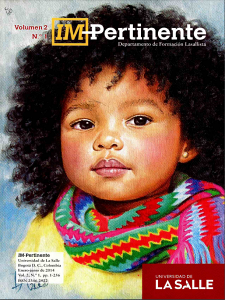Abstract
In the case study I suggest addressing in this article, I show how the reconstruction of historical memory is presented as a space of political struggle in Colombia—even more so than in other Latin American contexts or other continents that have gone through similar experiences—given the special condition it is in, as memory exercises are performed in the crossfre. The massacre that took place in January 9, 1999, at the police station of El Tigre (Putumayo, south of Colombia) by a group of approximately 150 paramilitaries from the Bloque Sur Putumayo of the United Self-Defense Forces of Colombia (AUC), and the subsequent reconstruction of memory made by victims and survivors in 2010, will allow me to illustrate this statement. The discussion proposed starts from an empirical concern to understand how policies about the past are produced and reproduced in Colombia; how the past becomes a narrative construction device, a technology for processing violence, and in what sense the past is an emblematic instrument of institutional action or a scenario of struggle for different social sectors concerning demands for truth, justice, reparation and guarantees of non-repetition.Downloads
Download data is not yet available.



